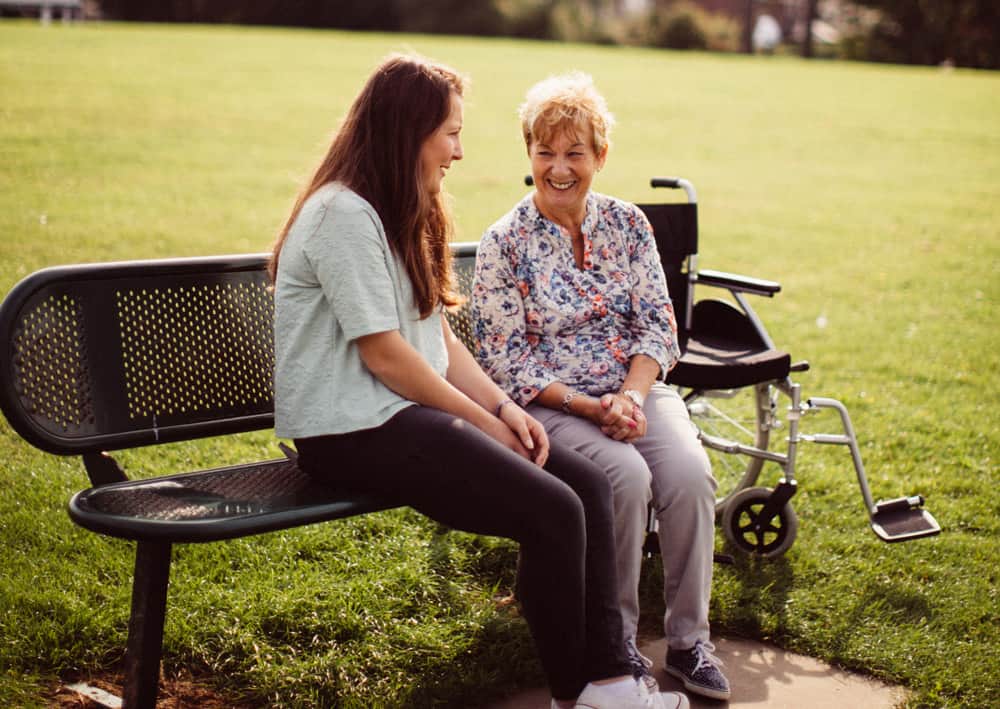A case study has highlighted that South Gloucestershire Council’s assistive technology (AT) service, led by occupational therapists and technicians, has successfully transformed adult social care.
The bespoke occupational therapy AT service facilitates integrates personalised, cost-effective technology solutions that facilitate independent living and embed technology into mainstream care planning and practice. Since its inception, the service has delivered on annual cost saving targets of up to £2 million and personalised outcomes that promote health and wellbeing.
The council was struggling with capacity to manage the increasing demand for its adult social care services.
Recognising that assistive technology had the potential to meet these growing care needs, in 2020 a 12-month project was funded by adult social care to evidence the hypothesis that AT may promote not only effective personalised outcomes but also deliver significant cost savings.
The project’s goal was to change the culture of adult social care by enabling people and social care practitioners to adopt technology solutions that meet assessed needs.
An occupational therapist (OT) with housing and telecare expertise was tasked to lead the service development with 12-month funding to employ two new and bespoke roles: an OT with a special interest in technology and an assistive technology technician role.
Together, these roles would bring relevant technology, telecommunication, electrical, and engineering skills as well as the aptitude to work directly with people.
After recruiting these roles, the project’s immediate aim was to connect residents to the help they need and provide tools and guidance to enable people to adopt AT solutions themselves. Increasing the use of AT within adult social care to prevent and delay the need for long-term care, including for commissioned services, was another key aim.
The AT team established an adaptation assessment hub in a house and showcased a range of technologies and their application. The team also guided adult social care colleagues to make appropriate referrals to the service, encouraging them to discuss assessments so that the potential of a suitable technology solution could be enabled.
In addition, the team developed specialist resources alongside e-learning and face-to-face training to enable the culture change required. In doing so, this gained the trust and understanding of colleagues who also recognised that they were not expected to be experts in technology and its application, installation, and maintenance.
The AT technician made each installation and provided the education and support needed for older and disabled people and their carers to adopt the technology. This was at no cost to the individual.
The AT team’s approach saw immediate results. Referrals were enabling ambitious, new, and different care and support options. Personalised solutions were being realised for individuals and their carers. The cost saving target set for the team was quickly exceeded. The team reduced pressure on local health services by enabling more people to stay in their homes and avoid unnecessary care admissions.
An audit of quantitative and qualitative data and key performance indicators evidenced the team’s effectiveness as a standalone solution and/or a solution integrated with more traditional care provision to reduce the cost of care packages. There was a significant return on investment.
On this basis, the council decided to retain the service beyond the 12-month project and support further development.
The AT team currently employs three OTs with special interest in technology as well as three AT technicians who all have technology-based trade skills. The service specification has expanded to provide assessment, support, and the prescription of technologies to support to adults with sensory impairments.
South Gloucestershire Council’s culture has fundamentally changed. The AT team works routinely alongside colleagues, enabling the use of technologies to be integrated into care planning, social care commissioned care and support. The key to this success is that the team provides consultation, advice, and guidance on Care Act assessments so that technology is considered as part of care planning.
It offers bespoke installations, facilitated by suitably skilled technology technicians. This ensures the prescribed technology is adopted and effective for the disabled person and carer.
The AT team further provides an evolving technology hub/showhouse, showcasing ‘barrier-free living’ through the integration of traditional adaptations and technologies. The house offers assessment facilities for moving and handing, Care Act and DFG-funded adaptations, and technology.
Moreover, the AT team delivers innovative training and an ongoing creative multimedia campaign to promote technology as a person-centred approach across all stakeholders.
The Local Government Association recently called on the UK Government to urgently boost the number of OTs employed by councils to increase community wellbeing, promote independence, and achieve government health goals. The association argues that more council-employed OTs would improve health, care, and prevention strategy outcomes and strengthen councils’ ability to meet their duties under the Care Act 2014.
The post South Cloucestershire Council saved £2m through bespoke occupational therapy assistive tech service appeared first on AT Today – Assistive Technology.

